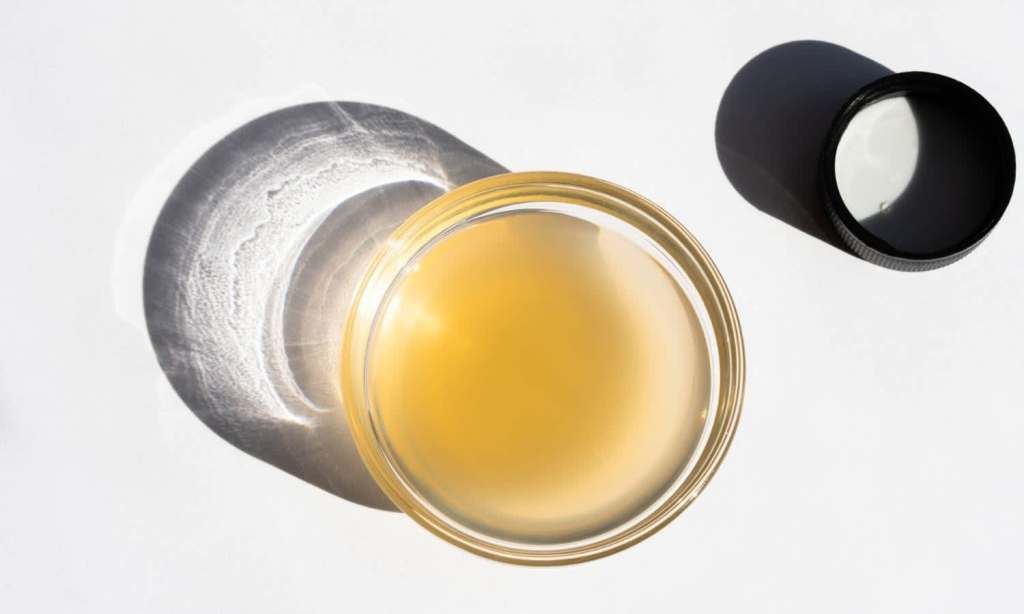You’ve probably heard people extol the health benefits of apple cider vinegar. In fact, you may be one of the people doing the extolling. If you Google it, there are over 65 million results. If you search it on Pinterest, the results are endless and numerous Pins talk about its “weight loss” benefits — in fact, the top Pin is a recipe for a weight loss drink.
The thing is, if you actually start to look into the science behind these supposed health claims — well, they’re not all there. As one university conference stated: “There is limited evidence of its effectiveness outside of a controlled environment.” Translation? It’s been studied in a controlled lab environment, but not out in the real world.
In fact, medical professionals have been pushing against the claim apple cider vinegar as something that’s good for your health since 1997, in a journal article titled The Sour Truth About Apple Cider Vinegar. The author Beth Fontenot, a nutrition consultant and freelance nutrition writer, calls the stories that people claim to benefit from apple cider vinegar tonics “folksy anecdotes”.
“But that was over 20 years ago!”, you say. True, but as recently as last year Healthline has said “Little research exists, and further studies are needed before it can be recommended as an alternative therapy.” An article on the University of Chicago Medicine’s website also reiterated this, stating “Overall, we need more studies to truly understand the health benefits and side effects associated with ACV.”
If you’re wondering where the rumour came from that apple cider vinegar does boast weight loss benefits, well it’s due to several small clinical trials. One conducted in 2009, and one in 2014.
The 2009 study, which was randomised and controlled, found that those who ingested 15-30mL of apple cider vinegar had a significant lowering of body weight and body mass index — it only looked at people considered “obese”. It is worth mentioning that the BMI is a flawed (and outdated) measurement in itself. It’s also worth mentioning the fact apple cider vinegar can cause appetite suppression due to nausea.
The study from 2014 also looked at those considered “obese” or overweight. One group ingested 30mL of apple cider vinegar daily; the other did not. Both groups were put on a restricted-calorie diet, of 250kcal/day energy deficit. On average, the group that took apple cider vinegar lost 4kg, the other group lost 2.3kg. With this study, it’s worth mentioning that the authors did not include whether or not there were any adverse effects — like the aforementioned nausea.
So what does this mean? It does kind of sound like apple cider vinegar causes weight loss. Well, not so fast. These are very small trials, focused on a specific body type, and the latter was only conducted for 12 weeks — something Harvard Health calls “short-term”. Or as Healthline puts it: “the true effects on body weight seem to be rather modest”.
Unless you fall into the specific body type studied, well, as the previously mentioned university conference said: “[There is] minimal evidence for application or effectiveness in regular daily life.”
Other things Harvard Health says about apple cider vinegar? That “the scientific evidence that vinegar consumption [of any kind] is a reliable, long-term means of losing excess weight is not compelling.” That’s right — not compelling. Also, it seems there’s no consensus as to when is best to consume it, and how much you should be consuming.
If you’ve read all this way and are still extolling the benefits of apple cider vinegar, well, our only advice — more of a plea really — would be to make sure you dilute it to the high heavens. Why? Because its high acidity can erode tooth enamel — and we all know how important tooth health is to the rest of our body. Try instead having apple cider vinegar as an ingredient in vinaigrette salad dressing.
Oh, and also, double-check with your doctor before taking it, particularly if you’re on any other medications. Apple cider vinegar can cause negative drug interactions.
Read more stories from The Latch and subscribe to our email newsletter.







